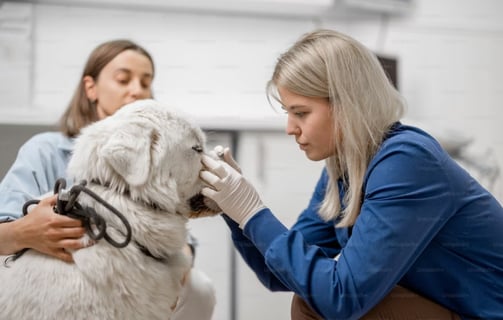Tick Bite on Your Pet? Take Action with These 5 Essential Tips
Discover what steps to take if your pet has been bitten by a tick. Learn five practical tips to address the situation effectively and protect your furry friend's health. Act swiftly and confidently to ensure your pet receives the necessary care.
DOG CARE TIPS
danka
6/21/20232 min read


Finding a tick on your beloved pet can be concerning, but it's essential to take immediate action to address the situation.
Tick bites can lead to various health issues, including the transmission of diseases. In this article, we'll provide you with five helpful tips to guide you in handling a tick bite on your pet. By following these steps, you can ensure your pet's well-being and minimize the potential risks associated with tick-borne illnesses.
Safely Remove the Tick:
Using fine-tipped tweezers or a tick removal tool, carefully grasp the tick as close to your pet's skin as possible. Apply gentle, steady pressure and pull the tick straight out without twisting or crushing it. Be cautious not to leave any tick mouthparts embedded in your pet's skin. Dispose of the tick by drowning it in rubbing alcohol or flushing it down the toilet.




Clean the Bite Area:
After removing the tick, cleanse the bite site with mild soap and water or a veterinarian-approved antiseptic. Gently pat the area dry with a clean towel. This step helps prevent secondary infections and promotes proper healing.
Monitor for Symptoms:
Keep a close eye on your pet for any signs of illness or unusual behavior following the tick bite. Common symptoms of tick-borne diseases include fever, lethargy, loss of appetite, joint pain, and lameness. If you observe any concerning symptoms, contact your veterinarian promptly for a thorough evaluation.
Save the Tick for Identification:
If possible, place the removed tick in a sealed container or a ziplock bag. It can be beneficial to have the tick identified by a professional, as certain diseases may require specific treatment. Knowing the type of tick involved can assist your veterinarian in assessing the potential risks and determining appropriate preventive measures.
Consult Your Veterinarian:
Reach out to your veterinarian for guidance and to discuss the situation. They will provide expert advice tailored to your pet's specific needs. Your veterinarian may recommend preventive measures such as tick testing, bloodwork, or prescribing tick control products to prevent future infestations. Follow their instructions diligently to ensure your pet's health and well-being.


Discovering a tick bite on your pet can be alarming, but with prompt action and proper care, you can effectively address the situation. By safely removing the tick, cleaning the bite area, monitoring for symptoms, saving the tick for identification, and consulting your veterinarian, you are taking proactive steps to protect your pet's health. Remember, prevention is key, so continue to implement tick prevention strategies to reduce the risk of future tick encounters. Be proactive, vigilant, and seek professional guidance when needed to ensure your pet's safety and well-being.


